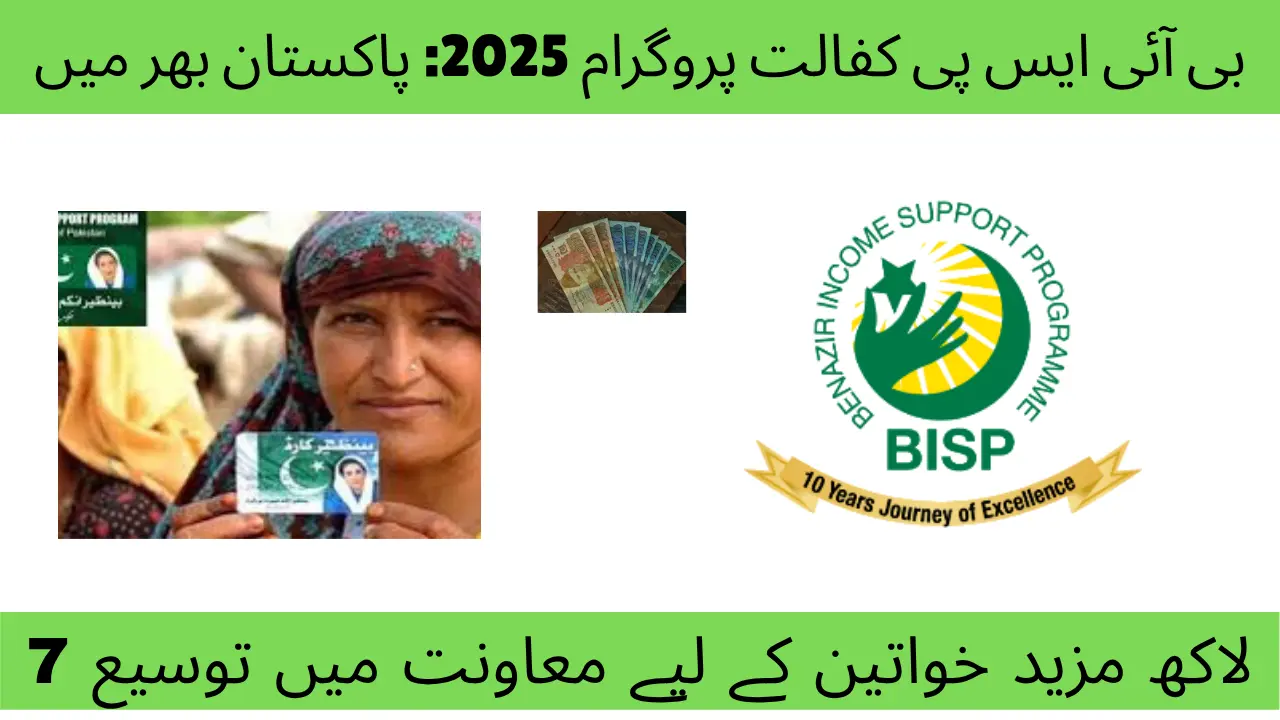The Benazir Income Support Programme (BISP) continues to be a cornerstone of Pakistan’s efforts to alleviate poverty and empower women. In 2025, the program has expanded its reach by including 700,000 new women beneficiaries under the Kafaalat initiative, reflecting the government’s commitment to social welfare and economic inclusion.
Understanding the BISP Kafaalat Program
Launched in 2008, BISP aims to provide financial assistance to low-income families across Pakistan. The Kafaalat program, a key component of BISP, specifically targets women, offering them quarterly stipends to support household expenses, healthcare, and children’s education. This focus on women not only addresses immediate financial needs but also promotes gender equality and women’s empowerment.
2025 Expansion: A Significant Step Forward
In 2025, BISP has taken a significant step by adding 700,000 new women beneficiaries to the Kafaalat program. This expansion is part of a broader plan to include 1 million women by January 2026, aiming to reach those who were previously excluded due to various reasons such as administrative errors or lack of awareness. The newly included beneficiaries will receive a quarterly stipend of Rs. 13,500, an increase from the previous amount of Rs. 10,500, to better address the rising cost of living.
Eligibility and Registration Process
To ensure that assistance reaches the most deserving, BISP has outlined clear eligibility criteria:
-
Women from low-income households.
-
Widows, divorced women, or those without a male breadwinner.
-
Individuals already registered in the National Socio-Economic Registry (NSER).
Registration can be done through:
-
SMS Service: Send your 13-digit CNIC number to 8171.
-
Official Website: Visit 8171.bisp.gov.pk and enter your CNIC details.
-
BISP Offices: Visit the nearest BISP office with your CNIC for assistance.
Enhancing Transparency and Accessibility
To improve transparency and ease of access, BISP has introduced individual bank accounts for its nine million female beneficiaries. This initiative aims to empower women by giving them direct control over their finances, reducing dependency, and promoting financial literacy. The program also utilizes biometric verification to ensure that funds are disbursed to the rightful recipients, minimizing fraud and errors.
Impact on Women’s Empowerment
The inclusion of 700,000 new women beneficiaries is more than just a numerical increase; it represents a significant stride towards women’s empowerment in Pakistan. By providing financial assistance directly to women, the program enables them to make decisions regarding their households, children’s education, and healthcare. This financial autonomy contributes to increased confidence and societal participation among women.
Payment Schedule for New Beneficiaries
The newly added beneficiaries can expect their payments as follows:
| Payment Phase | Amount (PKR) | Expected Disbursement |
|---|---|---|
| First Payment | 13,500 | Upon Approval |
| Second Payment | 13,500 | June 2025 |
| Subsequent Payments | 13,500 | Every Quarter |
Note: Beneficiaries will receive SMS alerts on their registered phone numbers regarding payment disbursements. It’s essential to keep contact information updated to avoid any delays.
Addressing Challenges and Ensuring Inclusivity
While the expansion is commendable, challenges such as reaching remote areas, ensuring accurate data collection, and addressing technological barriers remain. BISP is actively working to overcome these hurdles by:
-
Conducting awareness campaigns to inform eligible women about the program.
-
Collaborating with local organizations to facilitate registrations in underserved regions.
-
Enhancing technological infrastructure to support smooth operations.
Conclusion
The BISP Kafaalat Program’s 2025 expansion to include 700,000 new women beneficiaries underscores Pakistan’s dedication to social welfare and women’s empowerment. By providing financial support directly to women, the program not only alleviates poverty but also fosters a more inclusive and equitable society. As BISP continues to evolve, its focus remains steadfast on uplifting the most vulnerable segments of the population, ensuring that no one is left behind.

